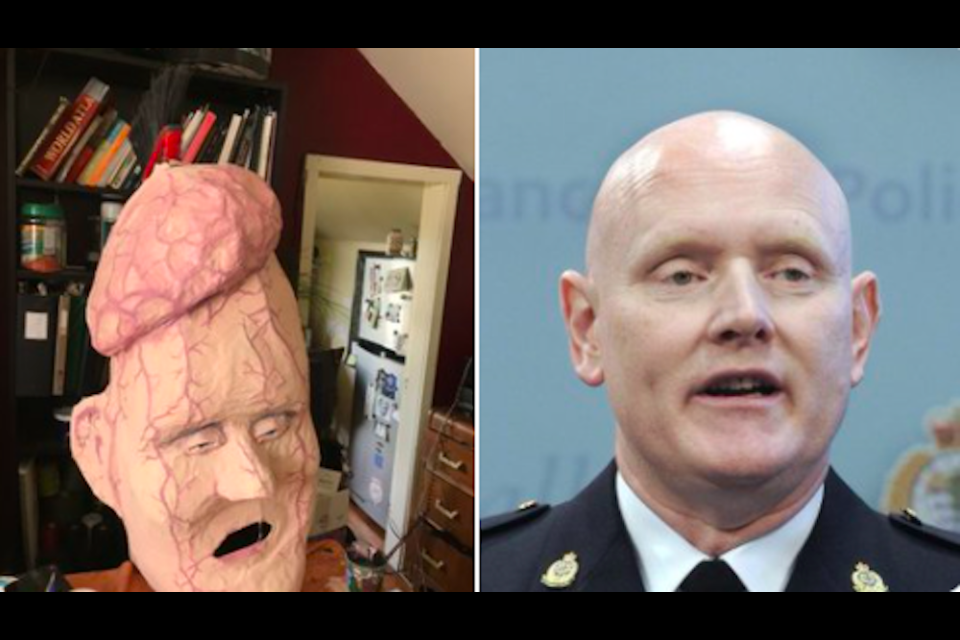Vancouverites are expressing mixed feelings after a group of advocates handed out free heroin, cocaine and methamphetamine outside the Â鶹´«Ã½Ó³»Police Department Wednesday (July 14) afternoon.
City Councillor Jean Swanson, along with members of the Drug User Liberation Front (DULF) and the Â鶹´«Ã½Ó³»Area Network of Drug Users (VANDU), distributed the free drugs outside the Â鶹´«Ã½Ó³»Police Department.
The collective action demonstrates the "life-saving potential of a community-led response to the crisis of prohibition in Canada" as a necessary alternative to Vancouver's proposed model of decriminalization, according to a news release. The drugs that were handed out were tested via "FTIR spectrometry and immunoassay, and are free of fentanyl, fentanyl analogues, benzodiazepines, and other harmful adulterants."
Jeremy Kalicum, DULF organizer, told Â鶹´«Ã½Ó³» that the group spent roughly $3,000 on drugs and distributed it among four groups. "We intended gave out more than the proposed threshold limit that's in Vancouver's proposed model.
"We gave three-and-a-half grams of each drug."
The group aims to raise awareness of the "deeply flawed aspects of the Vancouver Model of decriminalization," which includes the "disproportionate influence of the Â鶹´«Ã½Ó³»Police Department, unreasonably low drug thresholds, and lack of provisions for safe supply."
Safe supply in Vancouver
Councillor Swanson tweeted that she helped "hand out safe drugs with VANDU and DULF today" and that government action is needed "now so everyone can get safe drugs and no one dies!"
But not everyone supported the event.
Another city councillor — Melissa De Genova — took issue with the action. In a , she asked, "And where are these drugs produced and sourced? Is there a charitable receipt offered in exchange for a donation?" She also referred to the action as "drug trafficking."
Several groups and individuals responded to her statement, with many of them supporting her and others disagreeing.
A said she “traffics" drugs every day as a nurse. "I give hydromorphone, kadian, Ritalin, and stick people with fentanyl patches. Every day. [Doctors] actually ask 'how many dillies do you need/use?' At least I know my patients won’t die from what I traffic to them legally."
asked, "What are you doing about the poisoned drug crisis? Our neighbours are dying while you’re clutching pearls."
Other Vancouverites noted that the action isn't "trafficking" but rather harm reduction. Someone mentioned that what she said was "embarrassing" for a public official while another called it "brave."
VPD Cst. Tania Visintin told V.I.A. that "a number of concerned citizens" have contacted the police. "We are currently reviewing the circumstances," Visintin said.
Have a look at some photos and videos from the demonstration.
B.C. marks five years of opioid health emergency
April 14 marked a sobering anniversary in B.C. – five years since the overdose health emergency was proclaimed in the province.
In the past 25 years, more than 12,632 British Columbians have died of illicit drug overdoses. That’s equal to the population of the city of Terrace.
Since the 2016 emergency declaration, some 7,000 have died.
By January, an average of 5.3 people were dying daily.
B.C.'s chief coroner Lisa Lapointe said overdose is the fourth highest cause of death in the province with the average age of death being 43.
With files from Jeremy Hainsworth



